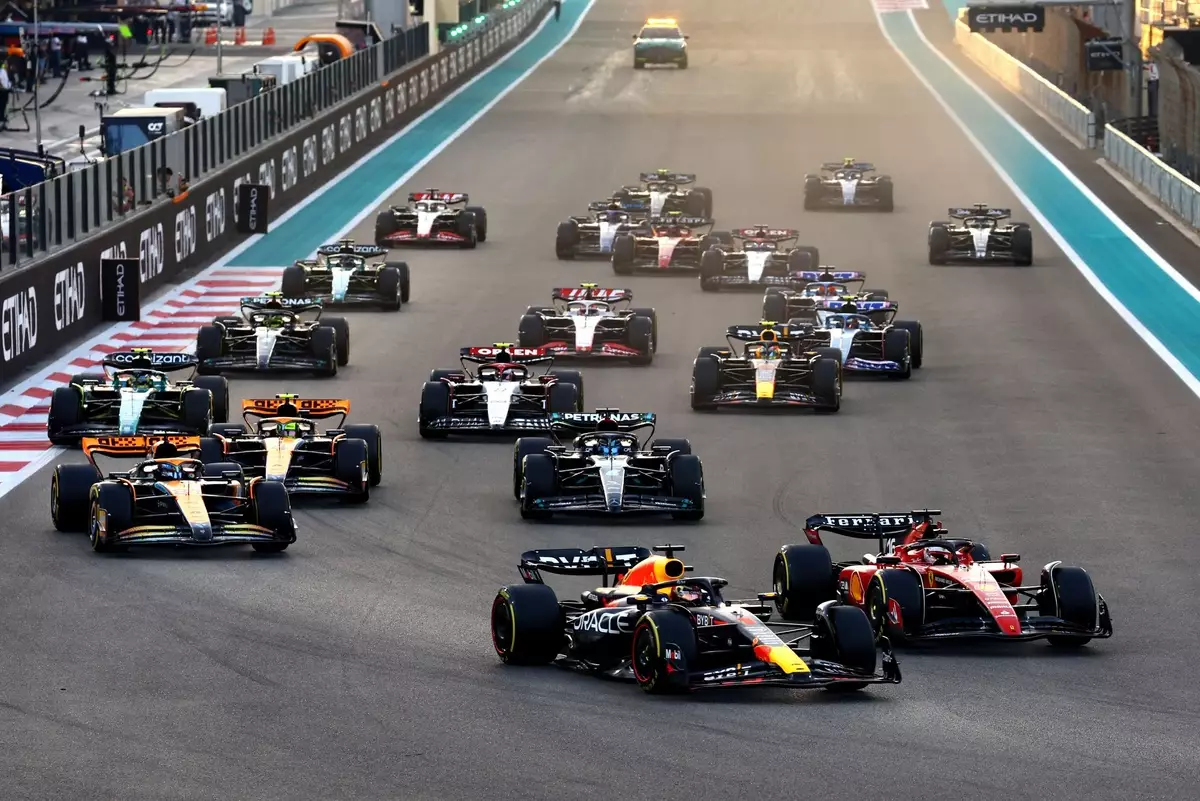The world of Formula 1 (F1) is a dynamic scene marked by constant evolution and innovation. Recently, a plan for a rookie sprint race during the post-season test in Abu Dhabi was scrapped, stirring discussions about the next steps for integrating new talents into the sport. The decision serves as a poignant reminder of the complexities surrounding logistical arrangements in motorsport, demonstrating that while enthusiasm and support for new ideas exist, practicality often prevails.
Amid growing excitement for a proposed sprint race focused on promoting rookie drivers, logistical challenges have thwarted the initiative’s execution for the 2024 season. Stakeholders, including teams and the FIA, indicated a strong desire to allow new drivers to gain relevant experience in competitive scenarios. The original plan entailed a 10-car sprint race following a qualifying session, optimized within the framework of the traditional Pirelli tire testing. However, as discussions progressed during the F1 Commission meeting, it became evident that the time constraints posed insurmountable challenges. Plans will now be shelved for the 2024 season, with discussions planned for reconsideration in 2025, indicating a future commitment to integrating rookie opportunities.
The essence of this development highlights a broader issue within F1: the managing of cutting-edge initiatives within tightly packed schedules. While the idea garnered support, the necessity for solid organizational structure and preparation only grows as the sport evolves. Interested parties must rethink their strategies and consider the implications of adding new formats or events to an already robust calendar.
In addition to the rookie race discussions, the F1 Commission tackled a significant revision of the 2026 technical regulations. Initially met with skepticism from teams, the proposal underwent robust discussions and revisions, ultimately leading to increased aerodynamic performance relative to the first drafts presented earlier in the year. This collaborative spirit between the FIA and teams showcases a commitment to honing technical regulations that emphasize performance while maintaining safety standards.
Such refinements are crucial as they not only address immediate concerns but also lay the groundwork for future competitive balance in the championship. The changes, articulated through recent Technical Advisory Committee meetings and ongoing dialogues, signify the sport’s ongoing transformation. They spotlight the essential relationship between regulatory bodies and the teams, creating a synergy that can propel F1 into its next era.
The preparatory framework for the upcoming 2026 season is characterized by rigorous testing and refreshed regulations. With the advent of new power units, notably from Audi and Red Bull-Ford, the Commission has established a comprehensive testing schedule featuring three separate three-day tests. This investment in preparation speaks to a broader understanding of the challenges posed by transitioning to intricate power unit regulations, amplifying the importance of teams being well-equipped before competition begins.
Financial sustainability and sporting fairness are additional cornerstones of the 2026 regulations. The evolution of financial regulations aims to enforce a balance where teams can thrive in a competitive environment while ensuring equitable resource allocation. Such measures acknowledge the financial realities of modern motorsport, where spending and investment strategies must adapt to ensure the longevity and health of the sport as a whole.
As Formula 1 navigates through these complex changes, it stands at a crossroads marked by opportunity and logistical realities. The decision to postpone the rookie sprint race highlights the meticulous planning required to roll out new features successfully. Concurrently, the revisions and improvements to the technical regulations signify that the sport is committed to growth and modernization. As discussions continue with an eye on the future, it becomes increasingly clear that Formula 1 is poised to embrace innovation while remaining anchored in the principles of safety, fairness, and sustainability. Fans, teams, and stakeholders are left to ponder how these shifts will ultimately shape the next chapters of a sport that remains one of the most exhilarating in the world.

